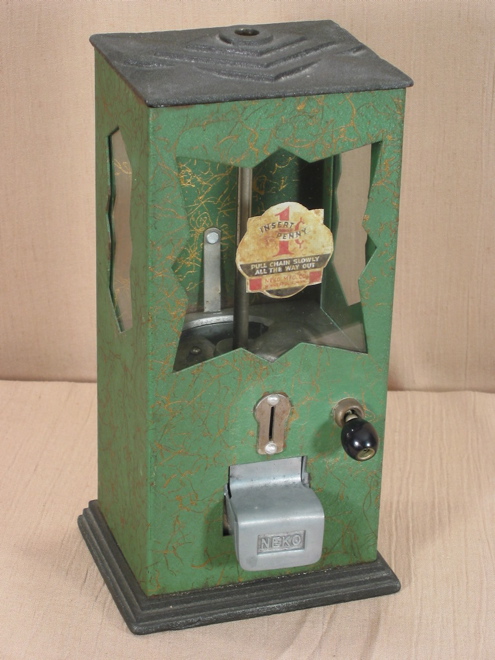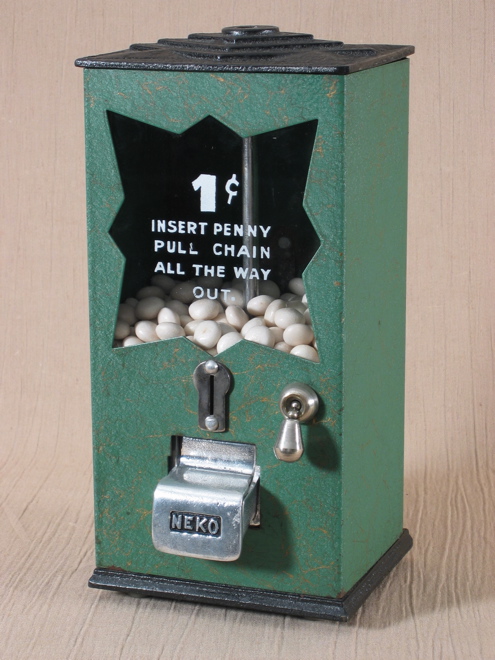___________________________________________________________________________________________
Neko Bulk Vendor


___________________________________________________________________________________________


Neko, c. 1930s, 11". This model oozes art deco, which is one reason I like it (they don't call me Dr. Deco for nothing*). The baseplate and lid are cast iron, and the body is sheet metal. The paint scheme is gold dribble paint over a green base. If it didn't have the neat paint job or the deco styling, it'd be just a box---but luckily for it and for us it does have the paint and the deco look so it's more than a box, or at the very least it's a very cool box. It's also one of only 3 models I can think of with a pull chain actuator, the other 2 being the Shipman (also sometimes labeled a Western) and the Radio Vender.
The examples above are 100% original except the decal on the left machine, which is a copy of a correct Neko decal. The decal on the right machine is just stencilling on the glass, and is original. Look closely and you'll see at least 4 other differences between the 2 machines, not counting the different decals. The machine on the left is the typical Neko, the one on the right is unusual.
The friend from whom I bought the machine on the right called it a "prototype" because of the different features and because this is the only one like it that he or I have seen. I'm not sure I agree with that term for this machine, but his use of it raised the question of what "prototype" really means. The way I see it is this: If a single machine, or 2 or even 3 machines, are made so a company's management can decide whether to produce the model, then it's a prototype. On the other hand, if production of a model is started and then the design is changed soon after that---to correct a design flaw, for example---then the machines produced using the first method aren't prototypes. They're production machines intended to be sold and used, and those are not prototypes by any stretch of the word. Sixty years hence they may end up being considered different and rare, but that doesn't make them prototypes even then. Whether a machine is a prototype depends on the reason it was made, and we can't discern that from just the facts that the design is different and rare. Nomenclature aside, there's no doubt that the example pictured above right is a rare version of the model.
* Actually, they don't call me Dr. Deco at all, but someone once referred to me with that pseudonym and I thought it fit pretty well, me liking art deco a lot. 'Course, this machine had nothing to do with what he said, what he said was a reaction to seeing a Pack-It Shop, which is even more deco than the Neko, not that there's a deco competition going on or anything like that. Nope. Deco is as deco does, as Forrest Gump once said, so let's just do it, as is....so to speak.
___________________________________________________________________________________________
___________________________________________________________________________________________
©Small Vintage Vending 2003